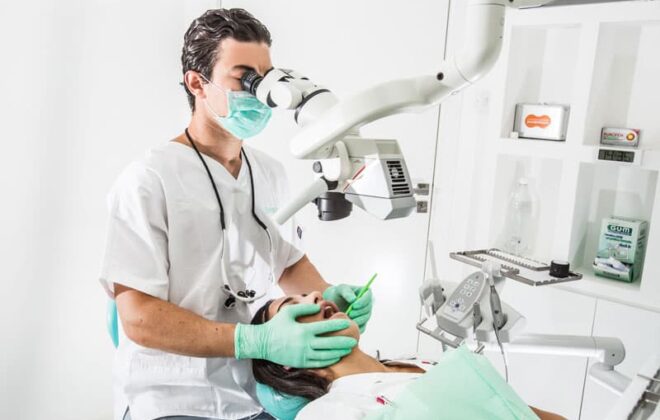We Remain Open For Emergencies During the COVID-19 Pandemic to Prevent Situations Like This
At York Hill Endodontics, we remain open for emergency service during the COVID-19 Pandemic to prevent painful, and even dangerous dental situations like this one below from occurring:
‘It’s been hell’: COVID-19 restrictions leave woman with broken tooth in pain
On the very day Nova Scotia shut most dental clinics due to the COVID-19 pandemic, Jennifer Allen bit into a carrot and broke a back tooth.
A month later, she’s still in pain.
The Halifax woman called her dentist in March and he told her to take Advil and Tylenol to manage the nerve pain.
He couldn’t see her in person due to restrictions introduced to combat the spread of the virus.
‘The pain became excruciating’
“That worked well for about a week and a half, but then the pain became excruciating because my tooth was infected,” Allen told CBC News Monday.
She had another telephone consultation and was prescribed antibiotics. She started to take them, but the pain returned.
“One night I woke up and I was crying,” she said. “I was in extreme pain.”
The pain was so bad she considered driving to the regular hospital emergency room, but decided to wait until morning. She spoke again to her dentist, who offered to refer her to one of the eight emergency dental clinics that are able to treat people in person during the pandemic.
Allen said she was told a root canal was not an option, but she could get the tooth pulled and the infection drained. Allen worried about requiring a false tooth later, when a root canal could save her tooth.
“It’s barbaric for the year 2020,” she said.
Root canal procedures limited
Dr. Martin R. Gillis, registrar of the Provincial Dental Board of Nova Scotia, said the board is “very sympathetic” to the dental needs of Nova Scotians during the pandemic.
People can get root canals at the province’s eight emergency clinics, he said, “but dentists are to limit the use of these procedures wherever possible.”
He said the protocols are designed to keep staff and patients safe from COVID-19.
“Dr. Strang’s order under the Health Protection Act limits dentists to managing only dental emergencies,” he wrote in an email to CBC News on Tuesday.
A root canal is a procedure that generates aerosol which increases the risk for COVID-19 transmission, Gillis said.
“Non-aerosol generating procedures are favoured over aerosol-generating procedures because transmission of COVID -19 occurs via droplets such as saliva,” he wrote to CBC News.
“The aerosolization of these droplets when using a dental drill greatly amplifies risk and the need for enhanced personal protective equipment, which is in limited supply.”
Gillis said that COVID-19 patients would only be treated in one of the province’s emergency clinics if they had a dental emergency that was life-threatening.
Anyone who tests positive for COVID-19 and has a non-life-threatening dental problem “must complete a strict protocol of home isolation as defined by the Centres for Disease Control prior to receiving treatment,” Gillis said.
Dentists evaluate each case
Gillis said dentists evaluate each case and decide if a root canal should be done.
“With this being said, there are several factors that are considered before performing a root canal during the pandemic, such as whether or not the tooth is in the esthetic zone and the prognosis of the tooth,” he said.
Allen is surviving on liquids and soft food, which she chews lightly and carefully on the opposite side of her mouth. She praised the dentists for doing what they could, but she’s still got a broken tooth and throbbing pain.
“It’s been hell,” she said. “Knowing that there’s nobody that can help you is awful. It makes the pain that much worse. The protocol is so strict.”
Article originally appeared at: https://www.cbc.ca/news/canada/nova-scotia/broken-tooth-pain-covid-19-restrictions-1.5547641
Author: Jon Tattrie



